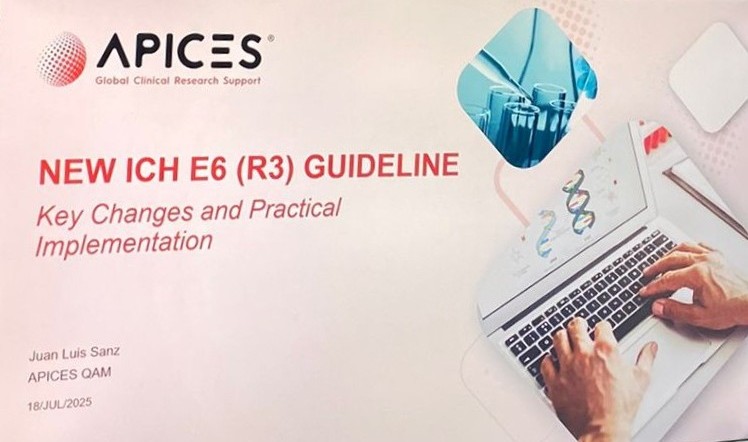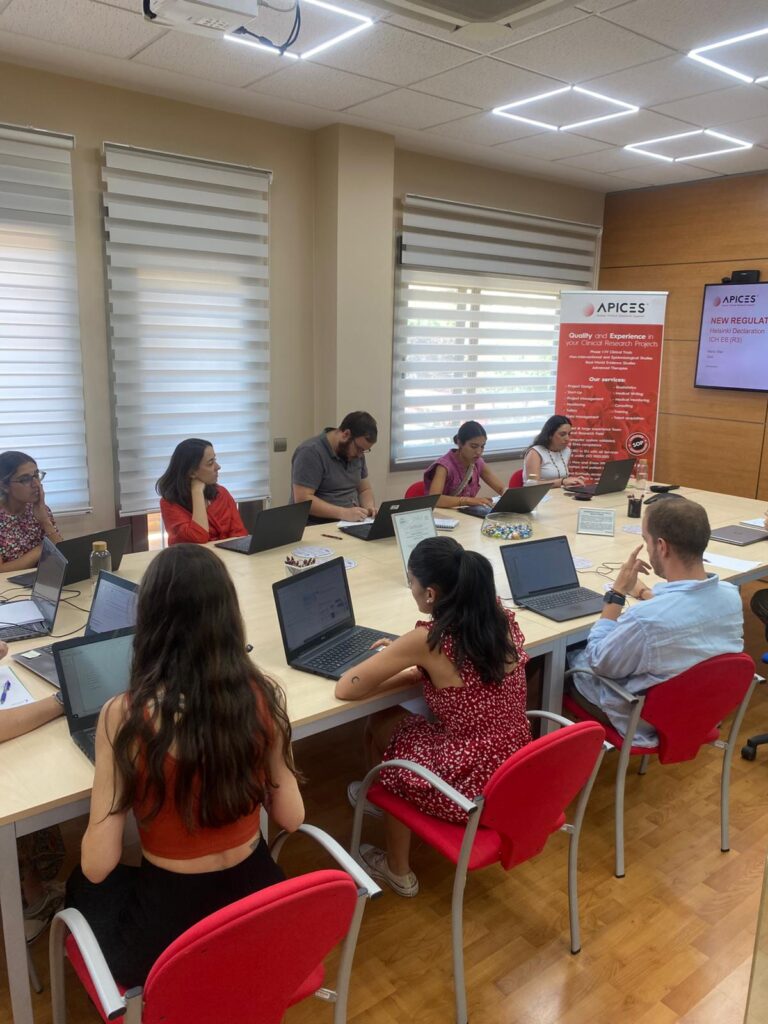Redefining Excellence: How APICES Adapts to the ICH E6(R3) Revolution in Clinical Research

The recent release of the ICH E6(R3) guidelines represents a pivotal moment for global clinical research. These updated standards aim to modernize the concept of Good Clinical Practice (GCP), ensuring it remains relevant in an environment of increasingly complex trial designs, emerging technologies, and evolving regulatory demands.
Among the most notable updates are:
- Recognition of new methodologies such as decentralized clinical trials (DCTs), hybrid models, the use of real-world data (RWD), and digital health technologies, which open new possibilities for trial accessibility and efficiency.
- A principles-based framework that reinforces ethics, scientific rigor, participant safety and data integrity as foundational pillars across all types of trials and settings.
- Risk-Based Quality Management (RBQM) takes a leading role, emphasizing a preventive and data-driven approach to oversight, moving away from exhaustive monitoring to smarter, risk-focused strategies.
- Greater flexibility and proportionality that allow trial requirements to be tailored based on their specific complexity, objectives, and risk profiles.
These changes aim to make clinical trials more agile, inclusive, and capable of delivering high-quality evidence in real-world conditions. They also highlight the importance of embedding quality into trial design from the outset, known as Quality by Design (QbD), to avoid inefficiencies and reduce protocol deviations.
Furthermore, the updated guideline introduces clearer expectations on documentation practices, roles and responsibilities, vendor oversight, and the life-cycle management of data. Sponsors, investigators, CROs, and technology providers are encouraged to collaborate under a shared responsibility model, ensuring consistent application of ethical and scientific standards throughout a trial.
In short, ICH E6(R3) reflects the evolution of clinical research toward a more patient-centric, digital, and risk-adapted model; one that promotes both operational excellence and regulatory compliance in an increasingly interconnected world.

At APICES, we implementated internal trainings, and supported by expert input, have enabled our staff to confidently interpret and apply the key aspects of E6(R3), while fostering a shared culture of quality and regulatory awareness across all departments. This proactive approach not only enhances day-to-day decision-making but also ensures that our teams are fully aligned with the evolving demands of clinical trial governance under the updated ICH framework.
Futhermore, we understand that adapting to regulatory change is not just about compliance, it’s about improving the way research is done. The new ICH E6(R3) is an opportunity to rethink how trials are built, to enhance efficiency, and above all, to protect patients through robust and thoughtful design.

At APICES, we have proactively embraced the implementation of ICH E6(R3), recognizing the far-reaching impact it will have on clinical research in Europe and beyond. Over the past months, our teams across Clinical Operations, Data Management, Medical Writing, Quality Assurance, and Regulatory Affairs have undergone specialized training sessions to understand and integrate the new principles into our internal processes and service delivery.
Incorporating ICH E6(R3) into our daily practices is not just a regulatory necessity, it’s part of our ongoing commitment to shaping a future-ready, patient-focused, and quality-driven clinical research ecosystem.
Contact us to conduct your clinical trials under the new ICH E6(R3) framework, ensuring regulatory alignment, enhanced data quality, and a patient-centric approach grounded in the latest global standards.



